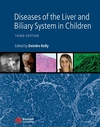 Professor David Jones‘ interest in muscle fatigue began some thirty years ago. But it was only a few years ago, he realised that most of what he believed about it was actually wrong — and a new understanding was made. Scientists, after all, change their minds in the face of new evidence.
Professor David Jones‘ interest in muscle fatigue began some thirty years ago. But it was only a few years ago, he realised that most of what he believed about it was actually wrong — and a new understanding was made. Scientists, after all, change their minds in the face of new evidence.
In his Introduction to The New Optimists, editor Keith Richards uses David’s essay — which appears in Chapter 9: From where I stand — as an exemplar of what drives scientists:
“In his entertaining contribution, David Jones explains how his work on muscle fatigue followed a particular line of enquiry for 30 years, but ‘always with a slight nagging doubt’. Then a series of experiments revealed to him that he and his colleagues had been fundamentally wrong for all that time. Writing off 30 years work would plunge most mortals into deep denial or drive them into the arms of a convenient therapist, but David is a scientist — he became very excited!”
Professor Jones’ interest in muscle fatigue started when he was working at the Postgraduate Medical Centre at Hammersmith some thirty years ago, after he’d studied Medical Biochemistry as an undergraduate at the University of Birmingham, and obtained a PhD from the Institute of Psychiatry in London.
Today, with Emeritus Professorships at both the University of Birmingham and Manchester Metropolitan University, his current research interests are fatigue during exercise (with applications for both improving athletic performance and helping patients with exercise intolerance) and the stimulus for muscle growth. He also has an interest in the genetic basis for differences in the response in training between subjects.
 Chemistry is a discipline that underpins many others. It has a vital role to play, says Jim Tucker, Reader in Supramolecular Chemistry at the University of Birmingham, in the synthesis and study of new materials, drugs and therapies, energy conversion and storage, solar energy and diagnostics for human health . . .
Chemistry is a discipline that underpins many others. It has a vital role to play, says Jim Tucker, Reader in Supramolecular Chemistry at the University of Birmingham, in the synthesis and study of new materials, drugs and therapies, energy conversion and storage, solar energy and diagnostics for human health . . .












